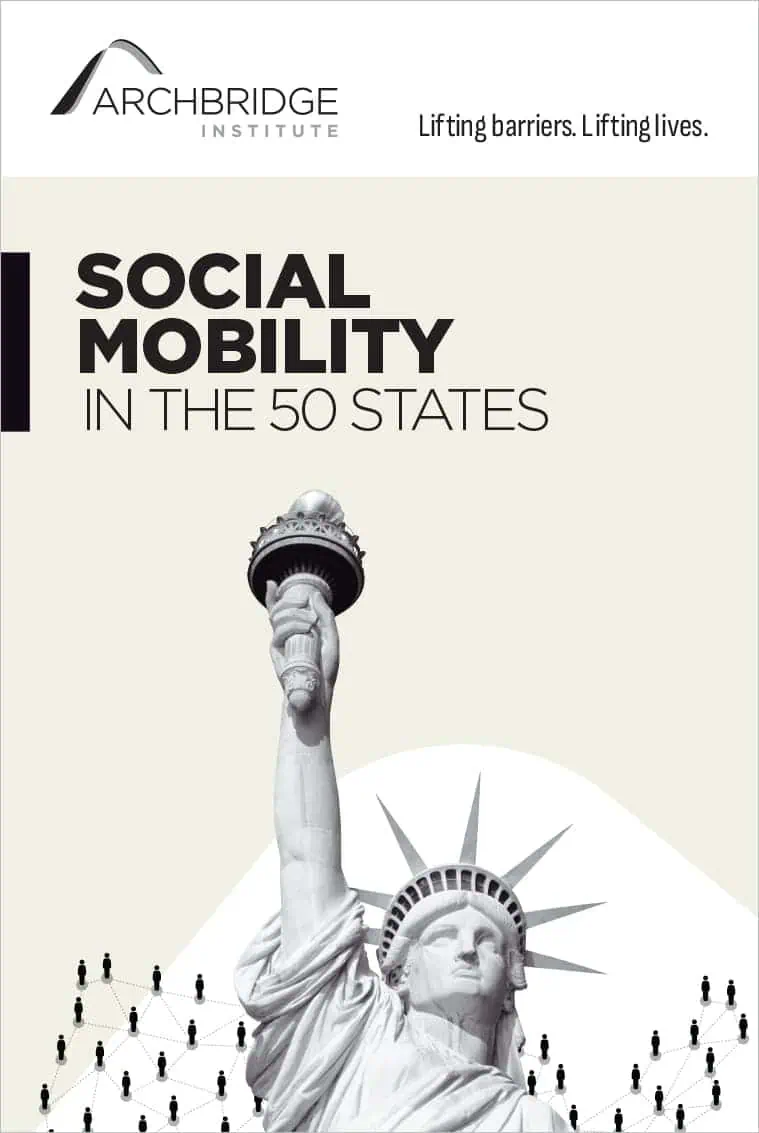Key Findings
- Many scholars have examined the role of social capital in determining economic and social mobility. However, few have tied the role of market institutions (namely, economic freedom) in determining social mobility.
- We combine the economic freedom data at the MSA-level with social capital data from Chetty et al. 2022 to estimate their effects on social mobility within the United States.
- We find that economic freedom almost always matters for absolute and relative mobility.
- While the literature is already clear on the fact that economic freedom increases incomes, this study is the first within the United States to show that the effects of economic freedom help those at the bottom more relative to those at the top.
- Social capital (specifically “economic connectedness”) also matters for mobility, but to a lesser extent than economic freedom.
Download the full report.
AI-Mobility-Economic-Freedom_Final
Justin Callais, PhD, is the Chief Economist at the Archbridge Institute. He leads the institute’s “Social Mobility in the 50 States” project and conducts original research on economic mobility, economic freedom, economic development, and institutional analysis. Follow his work @JustinTCallais and subscribe to his newsletter, Debunking Degrowth.
Vincent Geloso, PhD, is an assistant professor of economics at George Mason University. Follow his work @VincentGeloso.
Alicia Plemmons, PhD, is an assistant professor in the Department of General Business and research fellow at the Knee Regulatory Research Center at West Virginia University. Follow her work @Alicia_Plemmons.






